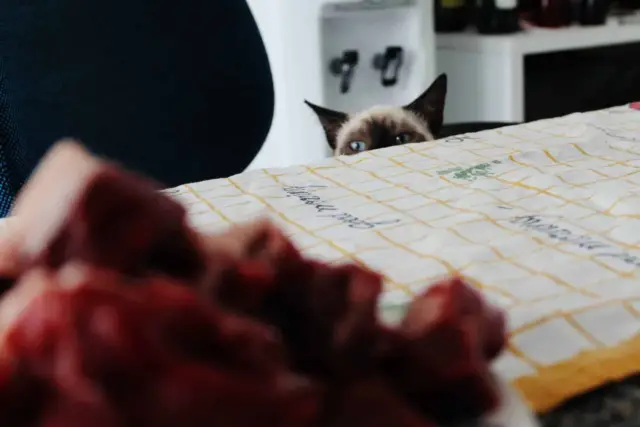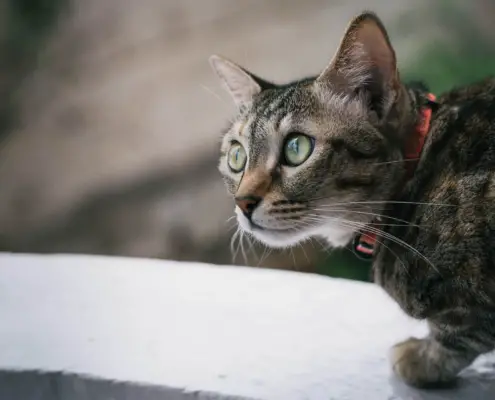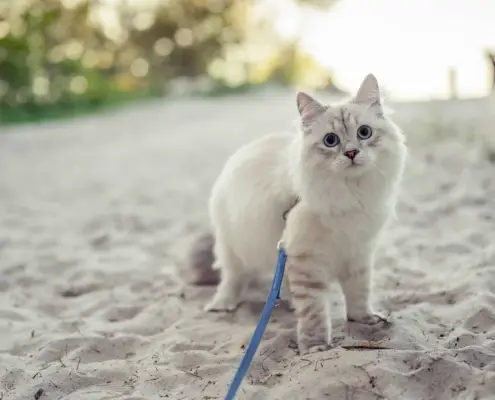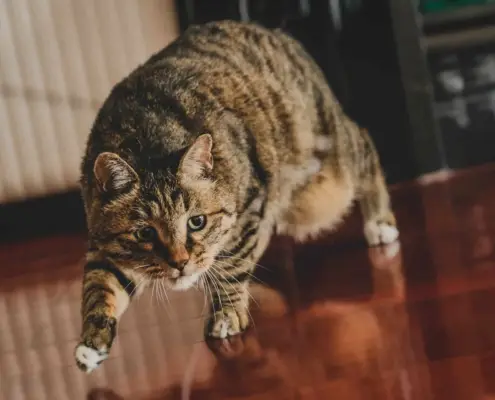
Cats have long been known for their mischievous nature and their tendency to steal objects. From small trinkets to shiny jewelry, these furry creatures seem to have a penchant for thievery. But why do cats engage in such behavior? What drives them to become little burglars in our homes? In this article, we will delve into the intriguing world of why cats are thieves, uncovering the evolutionary reasons behind their actions, exploring their hunting instincts and prey drive, and analyzing the factors that contribute to their thieving behavior.
Evolutionary reasons behind cat thievery
To understand why cats are thieves, we must first look into their evolutionary history. The domestic cat, descended from their wild ancestors, has retained many of their primal instincts. One such instinct is the natural inclination to hunt and gather. In the wild, cats would steal prey from other animals to survive. This innate behavior has been passed down through generations, even though domestic cats no longer rely on stealing for sustenance.
Hunting instincts and prey drive in cats
Cats are born hunters, equipped with sharp claws, keen senses, and a strong prey drive. Their hunting instincts are deeply ingrained in their DNA, and they cannot simply ignore them. When a cat spots a small, shiny object, it triggers their predatory instincts, making them believe it is a potential prey. The thrill of the chase and the satisfaction of capturing the object mimic the experience of hunting in the wild. This is why cats often steal small items, such as pens, hair ties, or jewelry, as they resemble the movement and appearance of prey.
Curiosity and exploration: Factors that contribute to cats’ thieving behavior
Another factor that contributes to cats’ thieving behavior is their innate curiosity and desire for exploration. Cats are curious creatures by nature, and they are constantly on the lookout for new and interesting things to investigate. When they encounter an object that piques their curiosity, they may feel compelled to steal it to further explore and satisfy their inquisitive nature. This behavior is particularly prevalent in indoor cats, as they have limited opportunities for exploration compared to their outdoor counterparts.
Stealing objects for attention and play
Cats are intelligent beings that crave stimulation and attention. In some cases, cats may resort to stealing objects as a means to gain attention from their owners. By snatching an item and running away with it, they create a playful game of chase, enticing their owners to engage in a playful interaction. This attention-seeking behavior is not necessarily driven by a desire for possession, but rather a desire for social interaction and mental stimulation.
The psychological aspect of cat thievery: Understanding the feline mind
To truly understand why cats are thieves, we must delve into the psychology behind their actions. Cats are complex creatures with intricate minds. The act of stealing objects can serve various psychological purposes for cats. It can provide them with a sense of control, as they manipulate their environment to suit their desires. It can also be a form of self-soothing or stress relief, allowing cats to redirect their energy and focus on a task. Understanding the psychological motivations behind cat thievery can help us better address and manage this behavior.
How to prevent and discourage cat thievery
If you find yourself with a furry thief in your midst, there are several strategies you can employ to prevent and discourage cat thievery. One effective approach is to provide ample mental and physical stimulation for your cat. Engage in interactive play sessions, provide puzzle toys, and create an environment that encourages exploration. By satisfying their natural instincts and providing outlets for their energy, you can help redirect their focus away from stealing objects. Additionally, ensuring that your cat has access to appropriate toys and objects to play with can help minimize their desire to steal.
The humorous side of cats as thieves: Famous feline theft incidents
While cat thievery may be a nuisance at times, it also has a humorous side. Numerous stories and incidents have been documented showcasing the antics of cats as thieves. From stealing socks and hiding them in secret hiding spots to pilfering food from unsuspecting owners, these tales bring a smile to our faces and remind us of the mischievous nature of cats. Embracing the humorous aspects of cat thievery can help us appreciate their unique personalities and quirks.
Cat thievery in popular culture and folklore
Cats’ reputation as thieves extends beyond our homes and into popular culture and folklore. Throughout history, cats have been depicted as cunning and sneaky creatures, often associated with theft and trickery. From the Cheshire Cat in Lewis Carroll’s “Alice in Wonderland” to the infamous Cat Burglar in countless movies and books, cats’ thieving nature has been immortalized in various forms of media. These portrayals further reinforce the idea that cats have a penchant for mischief and thievery.
Embracing the mischievous nature of cats
In conclusion, the mystery of why cats are thieves can be attributed to a combination of evolutionary instincts, hunting behaviors, curiosity, and desire for attention and play. Understanding these factors can help us better appreciate and manage their thieving tendencies. By providing appropriate outlets for their natural instincts, engaging in play and mental stimulation, and embracing the humorous aspects of cat thievery, we can create a harmonious environment for both cats and humans. So, the next time your furry friend steals your sock or swipes a shiny object, remember to embrace their mischievous nature and enjoy the unique bond you share with your little feline thief.
If you enjoyed my article, I would appreciate you sharing it with your network.

Sima Ndlebe
Sima writes for CatBuzz. He is interested in Cats, Health and Fitness, and Entrepreneurship.
Published: 5 December 2023



